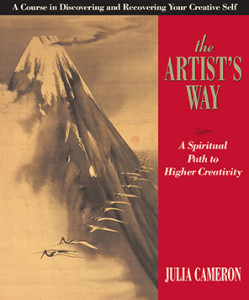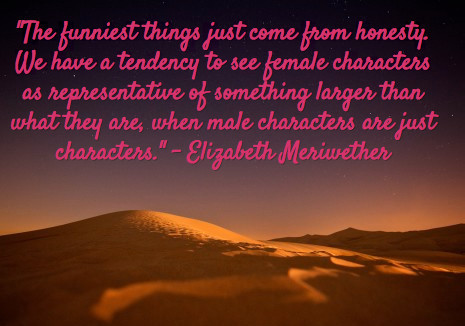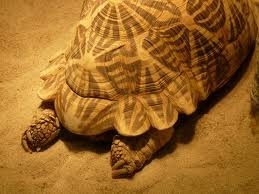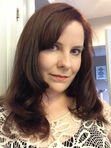Kate Larking's Blog: Anxiety Ink, page 72
February 2, 2014
Tallying Success
A couple weeks ago, I hit on a brilliant idea. Another writer-friend has since adopted it and has found it to work rather well for her, too.
One of my goals for 2014 is to write at least six days a week. Now into February, I’ve so far written every single day. Maybe not a lot of words, but each one is progress.
A way I keep track of my writing days is by making a mark in the margin of my notebook on whatever line I’ve started that day. That’s a fun record for me — except when I spend an entire week on a single spread *cough* — but that doesn’t work so well outside of the rough draft, and only if you hand write like me. It also won’t tell me if I spend a day on another project, or if my only creative writing is a blog post, or letter, or prompt exercise, or free-write.
And all that counts. As long as it is for-me writing, it counts.
So sometime in the second week of January, I decided to keep a tally, not of the days I write, but of the days I don’t.
Allow me to be perfectly clear: this is not a tally of failures. I am allowed days off. They can be necessary in order to avoid — or in case of — burnout. Hopefully, by the end of the year, I won’t have made more than 52 tally marks.
The hardest part of making myself sit down to write is opening the notebook and picking up the pen. But I have to do that, anyway, to make a slash mark on a piece of paper. At that point, it’s about as simple to write a line. So I do that; no need to make the tally! One more free day I can use when I reach the inevitable post-draft burnout, or go to a convention, or that week I’ll be in Istanbul.
And once I’ve written once sentence, the ice is broken. Make it a paragraph. Make it a page!
Before I started doing this, I felt like a failure if I wrote less than a page, so on some days when I just couldn’t do that do that — I knew I wouldn’t be able to — I wouldn’t write at all. Better to make life-got-in-the-way excuses than to face whatever paltry amount I might conjure.
But now even a single line feels like a victory. (It is.) I see what I’ve done, rather than what I haven’t, and that just encourages me to keep going.
January 30, 2014
A writer? Who, me?
I encountered two quotes I really took to heart this week. I like to think the universe takes time to nurture me as much as kick me.
“It ain’t what they call you, it’s what you answer to.” W.C. Fields
“Trees that are slow to grow bear the best fruit.” Molière
I don’t know if anyone can relate, but I am very reticent to call myself a writer. It’s the dumbest thing, right? Writer just sounds so professional, carries so much mystique, and invokes a level of ego that I don’t have. Those are my best excuses. Really, it’s because I feel like someone is going to call me out on it. What are they going to call me out on, you ask? Well, do I have any publishing tied to my name? No. Do I have a book ready to be published? No. Do I have a manuscript ready for editing? No.
Is being published what makes a writer a writer? No.
I have problems. Worse than you’re starting to learn. For instance, author is a whole other ball game. We’re not even going to discuss that one.
I remember in my second year of university sitting in my second creative writing class –the huge deal one because I had to compete to get into it, and my previous creative writing teachers told me that a lot of people had to apply a number of times in a row. So every year. I’m so glad I didn’t have to do that because I don’t know that I would have had the nerve to try a second time –regardless, I was semi-terrified. And not just because the prof is –is, because she still has the power to make my heart stop with a sideways look– one of the most intimidating women I have ever come face to face with. She was talking to the class at large, what about I couldn’t tell you, but she called us “a group of writers.”
That’s what I remember. Her calling me a writer in that moment. Before then, and even after, being a writer was a future goal, not a present reality. I recall my eyes kind of bugged out and I thought, “Writers? Right now? These people? Me? Really? Really?”
Yeah, my inferiority complex is pretty awesome. I have an English degree, a creative writing designation on my transcript and a huge creative writing project that took over a year to complete, almost 20 years of writing under my belt, dedication, and projects on their way to completion. Oh, and the backing and support of awesome writers who vary on the legendary scale. I have some chops even though I seem to forget them more often than I care to remember them.
Still, I cringe when I tell people I’m a writer or they call me a writer, I feel like the sword of Damocles is going to go choppy chop. This leads me back to my quotes: I need to make a greater effort towards answering to writer. I can call myself one hesitatingly at this point but somewhere down the line I need to own it. It’s what I am, I need to reconcile it and get over myself.
For me, this makes Moliere’s quote almost more important. 2013 saw me commit to writing in a way I never had before, it saw me jump in head first and start writing for myself again. I’m still growing, I’ll always be growing, hopefully sometime soon my labour will provide tangible fruit I can grasp and use as a shield against that sword I’ve hung over my own head.
January 29, 2014
Writing is Hard Work
Writing is hard work. But it really, honestly shouldn’t be.
I mean, yes, you should take the time to draft. And then there are revisions and edits. Critiquing. Proofing. It is a lot of work.
But if you’re staring at what you’re working on and your first thought is to go surfing the net, something’s wrong.

Art by Danger Dust
For the last week, I’ve been believing that something is wrong with ME. I’m procrastinating I’m making all the wrong choices. I’m depressed. The litany of excuses goes on and on.
And then I realized the problem. The piece I was working on, where the tension wasn’t quite there, the story wasn’t building like it ought to, all these things wrong with it…the piece didn’t fit. And what it didn’t fit was me.
I was trying to write to meet a submission call for an anthology. And the subject matter wasn’t quite my genre or passion but I wanted to try it. And this story was stopping me from doing everything. It was stopping me from editing my novel. It was stopping me from writing new novel scenes. It was stopping me from plotting a serial I wanted to plan, write, publish.
So I decided to drop it.
It took a few days to decide. You sink 4K into a project and you want to keep it going, keep it afloat. I like the characters, I do. I don’t have the research to support it. The deadline was looming. If I dropped it now, I wouldn’t make the call. I fought with the idea that if I didn’t make the call for that anthology, then my work would be for nothing.
But waking up and seeing it wasn’t working and it was really making things hard, that was worth more than I could really say. I am going on my edits now. Today, I dropped the shoulds and coulds and realized that if I’m going to edit and get ideas for the sequel, I might as well be writing them down, even if it’s not sold or committed anywhere.
I have time to do what makes me HAPPY. And I’ll be damned if I’m going to drown from something that’s dragging me down if it’s simply not a good fit.

Art by DangerDust
January 27, 2014
Thoughts On The Artist’s Way

Image from http://juliacameronlive.com
The first time I picked up The Artist’s Way by Julia Cameron, I only got as far as the first chapter. Or, rather, the chapter that describes the first week. From that, I took away the idea of Morning Pages: three pages, hand-written, stream-of-conscious, meant to clear the mental clutter so you can get on with the creating.
I was skeptical at first, but it took me no time to see they worked as advertised. Even now, I’ll sometimes use them as a coping mechanism, should I need one.
Confession: I’ve never made it all the way through, though the last time I made it to week eleven!
For those of you who aren’t familiar with it, The Artist’s Way is a twelve-week course designed to boost/release/un-inhibit creativity. Some of my craziest, riskiest, and best ideas have come to me in conjunction with some of the methods used in the course.
Julia Cameron, by the way, is author of one of my favorite books on writing: The Right to Write. It’s right up there with Natalie Goldberg’s Writing Down the Bones for me.
I definitely recommend giving it a try, no matter what stage you’re at in your own creative life. This is pretty fantastic if you’re blocked, or feeling generally frustrated, or are struggling with that inner critic.
My only caution is that, since the whole thing is such an intense and highly personal experience, you make it clear to those you’re living with — spouse/significant other, parents, siblings, friends, etc. — that this is important to you, so it is important that they respect that . I’ve been lucky enough that my husband is wholly supportive and understanding, but not everyone has that. Boundaries are key.
*This post instigated by Kate, who should totally give it a try.
January 23, 2014
Me, Myself, and Isolation
For the past few weeks, there’s been a flurry of talk around me about being part of in-person and online writing groups. I’ve volunteered myself, been volunteered, and watched the planning stages grow with the requisite chatter and anticipation. I’m excited, I love talking about the craft and sharing my passion with other writers. There’s nothing like a community of like-minded people to motivate you and talk you down from the “something else” ledge when it seems like this writing thing isn’t going to work.
But then I think about myself and my Spartan writing habits. And I get anxious. Frankly, because very rarely can I write in a group setting or with other people.
I write in a tunnel. That’s the best way I can describe it. When I sit down at the keyboard, I eliminate all distractions and write with total focus on my screen and project; I tell people in my house that I’m writing, the cats find a good place to nap. Nothing else comes in and out of my consciousness while I’m fixated on the job at hand; I live and breathe my piece and I like privacy when I’m delving into emotional territory. I don’t do well with interruptions because I lose trains of thought and patterns, and this makes me grumpy. This kind of environment, the one I need to write, is excruciatingly hard to come by when you’re working with other people.
Furthermore, I’m a magpie! Writing is hard and I look for distractions 95% of the time. If someone is in the room with me I will constantly strike up conversation. Even by myself I get water, tea, snacks, etc. But once I’m in my groove I’m in it, and I don’t like to be disturbed.
Luckily, I’ve had success with “battling” people online. Timed intervals where I try to get the highest word count works for me. Getting myself coordinated with others to do this is actually the tricky part.
So I’m equal parts happy and worried about the possibility of a writing group, but I know touching base with other craft members and having a designated writing commitment time is going to be amazing. I’m going to suck it up and adapt.
I’m curious about others, do you find you have similar discipline issues? And for those of you in online or in-person writing groups, what has your experience been?
January 22, 2014
Strong Female Characters versus Mary Sues
There are a lot of talk about how the “Strong Female Character” is needed in more modern media.
I’m not going to go on a rant about how Strong Female Characters are needed; they are. But there is a huge misunderstanding in terms of the key modifier, “strong.”
I think the major problem here is that women were clamoring for “strong female characters.” … [and writers] thought the feminists meant [Strong Female] Characters. The feminists meant [Strong Characters], Female. – Kate Beaton(1)
A lot of writers are thinking, “Yeah, no problem! I’ll make this woman strong! She can beat any man in arm wrestling. But that’s not enough. She needs to be smarter, more tactically-minded. She doesn’t need anyone but everyone wants her. She’ll have this horrible backstory and everyone will be rooting for her!” In fact, this is a lot of the time the understanding the press has about strong female characters.
Congratulations, you have a Mary Sue.
While there are arguments for needing Mary Sues, which I do see value in and sometimes guiltily enjoy reading those “insanely unrealistic wish-fulfilment female characters,” there is a need for more female characters in general.
You want to give strength to female characters, fantastic. Great job, writer. Give all those strengths to one character? That’s Mary Sue. But while strong can mean having strengths, it also means having a fully-fleshed out character. Strong backstory, strong motivations, strong desires, strong conflicts. We need more developed female characters.
One of the best quotes I have seen on the subject is the below featured on, ironically, themarysue.com:
“There’s been a sort of trend for awhile of people writing strong women as women who are morally right, which is so uninteresting. It’s no fun and frankly it’s a massive disservice to womankind. It boxes us in to making these sort of slightly dull, virtuous choices… We need to be villains too. We need to be messy and sloppy and three-dimensional and complicated, and that’s writing a strong woman.”—Rebecca Hall
Villains doesn’t entirely mean antagonists (but it can). Villains doesn’t mean anti-heroine (but it can).
A lot of the times, when women are written on the page, they are inherently expected to be morally right. They are expected to act for the greater good. Selfishness that is allowed in male characters is tolerated less in female characters.
I have this theory that the likeability question comes up so much more with female characters created by female authors than it does with male characters and male authors. - Curtis Sittenfeld

This block might be created by the industry (publishing and media gatekeepers). But it might also be self-imposed on the creator, needing women to make the moral decision because that is seen as a major way for women to connect with the reader.
But beauty, strength, power is all in imperfection, complexity, and conflicting desires.
While there is a lot of female actresses talking about the issue (Rebecca Hall, above; Natalie Portman; Noomi Rapace, Ellen Pompeo), hilariously, male creators are most often the ones quoted and listened to when asked about creating developed female characters (Neil Gaiman, Joss Whedon, JJ Abrams)
For other references, there is a conversation that Chuck Wendig started in 2011 and a whole compilation on brainy quotes.
(1) – Kate Beaton actually quoted that male writers misunderstood. But I believe female writers are just as capable of misunderstanding and responding with strong female, characters. Especially beginning writers.
January 20, 2014
Origin Stories
Children are often wiser than they’re given credit for. Adults tend to think it’s a fluke when something incredibly profound emerges from their mouths.
An adult will look at a problem — a question: what do you want to do with your life? — and think in terms of paying bills, of responsibilities to family and friends. As an adult, the answer tends to be laden with our own expectations of our self-worth.
Ask a child and the answer might not be anything grounded in reality, and it might change in five seconds, but you get the truth. She’ll tell you exactly what she wants.
Writers — all artists, really — are like super heroes. We all have origin stories, whether our art was a quiet compulsion throughout our lives, or whether it came to us in a bolt of lightning. Some of us never consider that we might be artists until someone else points it out (and then we’re often slow to believe it).
I was eight, and my whole life was a competition with my sister. We were in the bathroom, because where else would an eight- and nine-year-old discuss such a profound, life-altering question? An astronaut — a woman — had visited my sister’s school that day. For the first time, she had been presented with the idea that a girl could be an astronaut, and she wanted that with an intensity and surety even beyond her usual. And in the middle of gushing, she stopped, turned to me, and asked The Question.
So what do you want to be when you grow up?
Someone else must have asked me before, but none of it had the weight of her asking. She expected nothing less than a perfectly serious answer, and something as equally true to me as her astronaut dream at the time was to her.
Ask a serious child a serious question, and you’ll get a serious answer.
I thought. The list of things I wanted to do and to learn would have stretched for miles. How would I know what I liked, what I was good at, what I could spend an entire lifetime doing and loving when I hadn’t even tried it yet? But one thing I could do day after day and never get bored was read. I could read and be all those different things I wanted to try. Only I would go myself, and learn things, and have experiences, and write them into my own stories.
It was a lightbulb-epiphany moment. I’ve never regretted it. I’ve learned wonderful, random things, and done some crazy, not-so-bright things. Whenever anyone asks me why, I grin like a maniac and say, “Why not? I can always write about it later.”
So what’s your origin story? Please share (you know you want to)!
January 16, 2014
Rumination
While ruminating the contents of today’s post it was suggested to me that I should write a post on rumination. So I did. Wallah! No, I didn’t pick this topic because it was Thursday night and I had zilch and my eyelids felt like they were trying to lift 50lb dumbells, although that’s 100% true. I acknowledged while trying to think of a topic that I do an inordinate amount of ruminating before I’m willing to hit the keyboard.
I actually have a fabulous example at the ready. I’m currently working on a story that involves knowing the major apocalyptic myths of three different pantheons of gods. I chose Greek mythology, Norse, and Hindu. The Hindu is making me jump through loops, not only do I have no minor base of reference in my head to use as a jumping point, but do you have any idea how many gods –let alone groups of gods– make up Hinduism? And so many of the gods have alternates, nope, that’s not the right term but that’s what I’m using for these deities who embody multiple personae.
Where’s my coffee at?
Anyway, the research has been equal parts frustrating and fascinating. For instance, I was researching a minor character, Bagala, last week, because I needed a better idea of her role even though I didn’t have big plans for her. Honestly, she’s mentioned maybe three times in the same scene of my story right now, I just needed a better idea of her so I could relay her in those scenes. And initially, I came across her name on a fluke. Now I’ve hit pay dirt!
I discovered that she has a major association with gold and yellow, lotus flowers, and Southern India; more importantly, she’s the epitome of justice, she is the righter of wrongs, the silencer of liars, and she has the ability to turn things into their opposites, amongst a plethora of other abilities and associations. I have her cast as a member of the group of trouble makers who are the antagonists of my story, that’s not going to change at all because now I can subvert expectations of her and add a layer of depth about her true motivations in my story. A layer I desperately need. AND, I have the perfect mental image for a medallion I need in my story to make a plot twist work.
*happy dance*
Can you tell I am so excited? And this all falls on top of me having read my very first spewy draft and not actually hating what I had written. Huzzah! I’m very pleased right now with the direction of my story and I owe a great deal of this to ruminating. Thus, my advice to each and every writer out there is to think, overthink, go back to the drawing board, research, and think some more. Rumination is one of the finest tools out there.
Happy ruminating!
January 15, 2014
Changing the Way I Write
I am planning to write a serialized fiction book in the next year and I’m facing a very interesting barrier.
Remember when I said I was a quilter? That I randomly assembled books and smoothed them over in an edit for a complete draft?
Yeah, for serialized fiction, where each section should have approximately the same number of words, how in the world am I supposed to make that happen, to plan the number of episodes, without outlining?
The answer: I don’t think I can.
So I’m facing an all new world here. I am not…adverse to outlining. I feel I will waste less time and will have a concise plan for edits, but I’m not sure how motivated I will be to write that way. I have a bit of pantser-based fear: the desire to find out where the story is going by exploring it in the story itself.
So I’m left with two possibilities:
Work to an outline. Plan the outline. Estimate the number of words per scene, book, etc.
Write the entire season, then split it into serials based on natural, probably cliffhanger-y sections

Whatever I end up doing, I am going to try. And learn. And be as honest with myself as possible as for what works for me and what doesn’t.
Have you ever tried to switch up your plotting/pantsing style? What have the benefits been?
January 12, 2014
Critique Relief
As painful as receiving critique can be, it is an amazing gift for your writing.
Good critique will do more than correct spelling and grammar. Don’t get me wrong — line editing is necessary and integral to a decent finished story, but that’s not critique. And if you ask family or friends (unless you’re incredibly lucky and that family or friend happens to be a writer/editor/agent/English teacher/someone you already know gives good crit), line edits are what you’ll get.
At least, that’s all I got.
It’s hard when you don’t know what you need. You have a story you love, but you know it could be better. Or you know it’s as good as you can make it, and you also know that’s not good enough for what you want this story to be and where you want this story to go.
But if you’re really new, maybe you know that critique and another set of eyes is crucial — and writing how-to will tell you that — but having access to critique, especially good critique, can seem next to impossible.
I asked my mother and grandmother to read my stories. I asked teachers. In high school, I finally joined a proper creative writing class and began to realize that what I really wanted out of any class or critique was much more elusive than the writing books made it out to be.
I didn’t have writer-friends until college. They were so much better at finding what worked and what didn’t — finding my plot holes, letting me know when a character slipped out of character, when the flow twisted out of synch, when it dragged, when perhaps another order in the sequence of events would make more sense.
As the people I trust writing-wise have grown and matured, so has their writing and the quality of feedback they give me. I have more writer-friends now than I did five years ago, and my writing is infinitely more awesome because of it.
Every time I’m given critique, whether I follow the suggestions or not, I learn. I learn about the story and I learn about the craft. I become aware of my own writing crutches (I’m a great one for sentences that make sense only if you read them in a certain way, which most won’t). I learn about story structure and character development. I learn what I do well and where I should pay more attention.
Recently, I received hands-down the best critique of my life to date. It was a friend-of-a-friend sort of situation.
He read a novel I was sick to death of. I’d made it the best I could with what help I’ve had, but something was still off. It was stuck, and I worried that its growth was finite, limited by my maturity as a storyteller at the time I first wrote it five years ago.
His critique poked holes in all its shortcomings, laying its numerous faults bare. It didn’t make me run and hide in a corner because the whole thing only articulated all the things I’ve known were wrong without being able to articulate them for myself. Now, I can’t wait to start rewriting.
And that’s the best sort of critique. It’s taken me a long, long time to get here, so don’t give up!
Anxiety Ink
- Kate Larking's profile
- 53 followers





